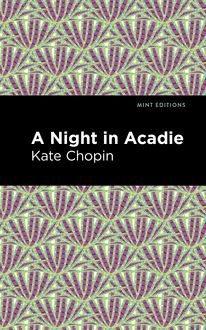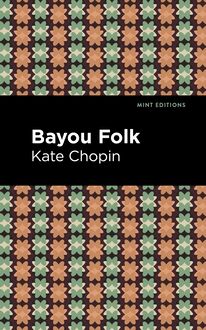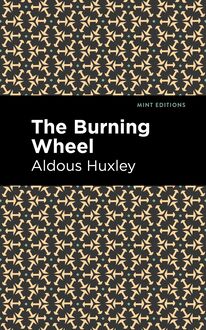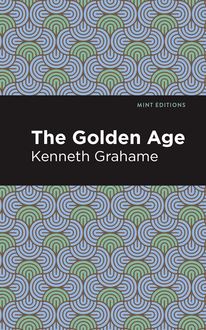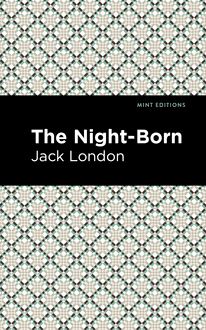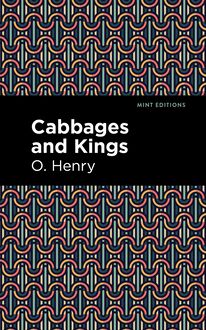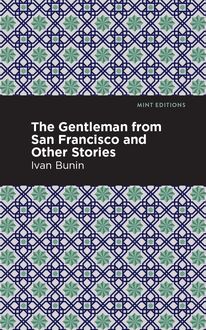-
 Univers
Univers
-
 Ebooks
Ebooks
-
 Livres audio
Livres audio
-
 Presse
Presse
-
 Podcasts
Podcasts
-
 BD
BD
-
 Documents
Documents
-
- Cours
- Révisions
- Ressources pédagogiques
- Sciences de l’éducation
- Manuels scolaires
- Langues
- Travaux de classe
- Annales de BEP
- Etudes supérieures
- Maternelle et primaire
- Fiches de lecture
- Orientation scolaire
- Méthodologie
- Corrigés de devoir
- Annales d’examens et concours
- Annales du bac
- Annales du brevet
- Rapports de stage
La lecture à portée de main
Vous pourrez modifier la taille du texte de cet ouvrage
Découvre YouScribe en t'inscrivant gratuitement
Je m'inscrisDécouvre YouScribe en t'inscrivant gratuitement
Je m'inscrisEn savoir plus
Vous pourrez modifier la taille du texte de cet ouvrage
En savoir plus

Description
Honoring his practice of tackling the taboo, esteemed author D.H Lawrence created a collection of evocative short fiction in The Prussian Officer and Other Stories. With themes of feminism and sexuality, The Prussian Officer and Other Stories examines varying levels and types of the abuse of power so common among men and government officials, especially in the 20th century. The Daughters of the Vicar depicts the aftermath of an unstable family as it follows Mary and Louisa, who are both sisters and best friends. Due to their father’s poor financial position and their parent’s loveless marriage, Mary and Louisa’s family is severely struggling. The women work as teachers to offer financial support, but when that proves to be too little, Mary is forced to marry a hideous an uncultured rich man. Miserable and dreading the rest of her life, Mary tries to warn Louisa from doing the same. Exploring similar topics, Second Best follows two sisters struggling with their identity and love life. Odour of Chrysanthemums depicts a later narrative of marriage than the aforementioned, as it portrays a woman’s emotional journey after being drained by her marriage. Separated into three parts, Odour of Chrysanthemums begins with the woman and her children waiting for her husband to return home, assuming he was at a pub. However, as the wait continues, they begin to suspect something more sinister may have occurred. Finally, the title story, The Prussian Officer stars a single military captain who feels that he has wasted his youth. In contrast, his orderly is young and in a happy relationship, making his captain jealous. Desiring his youth and feeling sexually attracted to the young man, the captain tries to ruin the orderly’s relationship and starts to abuse him, driving the young man to a dangerous decision. This collection of sentimental and compelling stories depicts sinister human truths and the depths of the despair societal expectations force upon people. With this careful and brutally honest portrayal, modern audiences are able to both observe the culture of 20th century England as well as consider dark human truths that are still prevalent today. This edition of The Prussian Officer and Other Stories by D.H Lawrence features a new, eye-catching cover design and is printed in a modern and easy-to-read font, crafting an accessible experience for contemporary readers.
Sujets
Informations
| Publié par | Mint Editions |
| Date de parution | 07 mai 2021 |
| Nombre de lectures | 0 |
| EAN13 | 9781513275536 |
| Langue | English |
| Poids de l'ouvrage | 1 Mo |
Informations légales : prix de location à la page 0,0500€. Cette information est donnée uniquement à titre indicatif conformément à la législation en vigueur.
Extrait
The Prussian Officer and Other Stories
D.H. Lawrence
The Prussian Officer and Other Stories was first published in 1914.
This edition published by Mint Editions 2021.
ISBN 9781513270531 | E-ISBN 9781513275536
Published by Mint Editions®
minteditionbooks.com
Publishing Director: Jennifer Newens
Design & Production: Rachel Lopez Metzger
Typesetting: Westchester Publishing Services
C ONTENTS T HE P RUSSIAN O FFICER T HE T HORN IN THE F LESH D AUGHTERS OF THE V ICAR A F RAGMENT OF S TAINED G LASS T HE S HADES OF S PRING S ECOND B EST T HE S HADOW IN THE R OSE G ARDEN G OOSE F AIR T HE W HITE S TOCKING A S ICK C OLLIER T HE C HRISTENING O DOUR OF C HRYSANTHEMUMS
T HE P RUSSIAN O FFICER
I
T HEY HAD MARCHED MORE THAN thirty kilometres since dawn, along the white, hot road where occasional thickets of trees threw a moment of shade, then out into the glare again. On either hand, the valley, wide and shallow, glittered with heat; dark green patches of rye, pale young corn, fallow and meadow and black pine woods spread in a dull, hot diagram under a glistening sky. But right in front the mountains ranged across, pale blue and very still, snow gleaming gently out of the deep atmosphere. And towards the mountains, on and on, the regiment marched between the rye fields and the meadows, between the scraggy fruit trees set regularly on either side the high road. The burnished, dark green rye threw on a suffocating heat, the mountains drew gradually nearer and more distinct. While the feet of the soldiers grew hotter, sweat ran through their hair under their helmets, and their knapsacks could burn no more in contact with their shoulders, but seemed instead to give off a cold, prickly sensation.
He walked on and on in silence, staring at the mountains ahead, that rose sheer out of the land, and stood fold behind fold, half earth, half heaven, the heaven, the banner with slits of soft snow, in the pale, bluish peaks.
He could now walk almost without pain. At the start, he had determined not to limp. It had made him sick to take the first steps, and during the first mile or so, he had compressed his breath, and the cold drops of sweat had stood on his forehead. But he had walked it off. What were they after all but bruises! He had looked at them, as he was getting up: deep bruises on the backs of his thighs. And since he had made his first step in the morning, he had been conscious of them, till now he had a tight, hot place in his chest, with suppressing the pain, and holding himself in. There seemed no air when he breathed. But he walked almost lightly.
The Captain’s hand had trembled at taking his coffee at dawn: his orderly saw it again. And he saw the fine figure of the Captain wheeling on horseback at the farm-house ahead, a handsome figure in pale blue uniform with facings of scarlet, and the metal gleaming on the black helmet and the sword-scabbard, and dark streaks of sweat coming on the silky bay horse. The orderly felt he was connected with that figure moving so suddenly on horseback: he followed it like a shadow, mute and inevitable and damned by it. And the officer was always aware of the tramp of the company behind, the march of his orderly among the men.
The Captain was a tall man of about forty, grey at the temples. He had a handsome, finely knit figure, and was one of the best horsemen in the West. His orderly, having to rub him down, admired the amazing riding-muscles of his loins.
For the rest, the orderly scarcely noticed the officer any more than he noticed himself. It was rarely he saw his master’s face: he did not look at it. The Captain had reddish-brown, stilt hair, that he wore short upon his skull. His moustache was also cut short and bristly over a full, brutal mouth. His face was rather rugged, the cheeks thin. Perhaps the man was the more handsome for the deep lines in his face, the irritable tension of his brow, which gave him the look of a man who fights with life. His fair eyebrows stood bushy over light blue eyes that were always flashing with cold fire.
He was a Prussian aristocrat, haughty and overbearing. But his mother had been a Polish Countess. Having made too many gambling debts when he was young, he had ruined his prospects in the Army, and remained an infantry captain. He had never married: his position did not allow of it, and no woman had ever moved him to it. His time he spent riding—occasionally he rode one of his own horses at the races—and at the officers’ club. Now and then he took himself a mistress. But after such an event, he returned to duty with his brow still more tense, his eyes still more hostile and irritable. With the men, however, he was merely impersonal, though a devil when roused; so that, on the whole, they feared him, but had no great aversion from him. They accepted him as the inevitable.
To his orderly he was at first cold and just and indifferent: he did not fuss over trifles. So that his servant knew practically nothing about him, except just what orders he would give, and how he wanted them obeyed. That was quite simple. Then the change gradually came.
The orderly was a youth of about twenty-two, of medium height, and well built. He had strong, heavy limbs, was swarthy, with a soft, black, young moustache. There was something altogether warm and young about him. He had firmly marked eyebrows over dark, expressionless eyes, that seemed never to have thought, only to have received life direct through his senses, and acted straight from instinct.
Gradually the officer had become aware of his servant’s young, vigorous, unconscious presence about him. He could not get away from the sense of the youth’s person, while he was in attendance. It was like a warm flame upon the older man’s tense, rigid body, that had become almost unliving, fixed. There was something so free and self-contained about him, and something in the young fellow’s movement, that made the officer aware of him. And this irritated the Prussian. He did not choose to be touched into life by his servant. He might easily have changed his man, but he did not. He now very rarely looked direct at his orderly, but kept his face averted, as if to avoid seeing him. And yet as the young soldier moved unthinking about the apartment, the elder watched him, and would notice the movement of his strong young shoulders under the blue cloth, the bend of his neck. And it irritated him. To see the soldier’s young, brown, shapely peasant’s hand grasp the loaf or the wine-bottle sent a flash of hate or of anger through the elder man’s blood. It was not that the youth was clumsy: it was rather the blind, instinctive sureness of movement of an unhampered young animal that irritated the officer to such a degree.
Once, when a bottle of wine had gone over, and the red gushed out on to the tablecloth, the officer had started up with an oath, and his eyes, bluey like fire, had held those of the confused youth for a moment. It was a shock for the young soldier. He felt something sink deeper, deeper into his soul, where nothing had ever gone before. It left him rather blank and wondering. Some of his natural completeness in himself was gone, a little uneasiness took its place. And from that time an undiscovered feeling had held between the two men.
Henceforward the orderly was afraid of really meeting his master. His subconsciousness remembered those steely blue eyes and the harsh brows, and did not intend to meet them again. So he always stared past his master, and avoided him. Also, in a little anxiety, he waited for the three months to have gone, when his time would be up. He began to feel a constraint in the Captain’s presence, and the soldier even more than the officer wanted to be left alone, in his neutrality as servant.
He had served the Captain for more than a year, and knew his duty. This he performed easily, as if it were natural to him. The officer and his commands he took for granted, as he took the sun and the rain, and he served as a matter of course. It did not implicate him personally.
But now if he were going to be forced into a personal interchange with his master he would be like a wild thing caught, he felt he must get away.
But the influence of the young soldier’s being had penetrated through the officer’s stiffened discipline, and perturbed the man in him. He, however, was a gentleman, with long, fine hands and cultivated movements, and was not going to allow such a thing as the stirring of his innate self. He was a man of passionate temper, who had always kept himself suppressed. Occasionally there had been a duel, an outburst before the soldiers. He knew himself to be always on the point of breaking out. But he kept himself hard to the idea of the Service. Whereas the young soldier seemed to live out his warm, full nature, to give it off in his very movements, which had a certain zest, such as wild animals have in free movement. And this irritated the officer more and more.
In spite of himself, the Captain could not regain his neutrality of feeling towards his orderly. Nor could he leave the man alone. In spite of himself, he watched him, gave him sharp orders, tried to take up as much of his time as possible. Sometimes he flew into a rage with the young soldier, and bullied him. Then the orderly shut himself off, as it were out of earshot, and waited, with sullen, flushed face, for the end of the noise. The words never pierced to his intelligence, he made himself, protectively, impervious to the feelings of his master.
He had a scar on his left thumb, a deep seam going across the knuckle. The officer had long suffered from it, and wanted to do something to it. Still it was there, ugly and brutal on the young, brown hand. At last the Captain’s reserve gave way. One day, as the orderly was smoothing out the tablecloth, the officer pinned down his thumb with a pencil, asking,
“How did you come by that?”
The young man winced and drew back at attention.
“A
-
 Univers
Univers
-
 Ebooks
Ebooks
-
 Livres audio
Livres audio
-
 Presse
Presse
-
 Podcasts
Podcasts
-
 BD
BD
-
 Documents
Documents
-
Jeunesse
-
Littérature
-
Ressources professionnelles
-
Santé et bien-être
-
Savoirs
-
Education
-
Loisirs et hobbies
-
Art, musique et cinéma
-
Actualité et débat de société
-
Jeunesse
-
Littérature
-
Ressources professionnelles
-
Santé et bien-être
-
Savoirs
-
Education
-
Loisirs et hobbies
-
Art, musique et cinéma
-
Actualité et débat de société
-
Actualités
-
Lifestyle
-
Presse jeunesse
-
Presse professionnelle
-
Pratique
-
Presse sportive
-
Presse internationale
-
Culture & Médias
-
Action et Aventures
-
Science-fiction et Fantasy
-
Société
-
Jeunesse
-
Littérature
-
Ressources professionnelles
-
Santé et bien-être
-
Savoirs
-
Education
-
Loisirs et hobbies
-
Art, musique et cinéma
-
Actualité et débat de société
- Cours
- Révisions
- Ressources pédagogiques
- Sciences de l’éducation
- Manuels scolaires
- Langues
- Travaux de classe
- Annales de BEP
- Etudes supérieures
- Maternelle et primaire
- Fiches de lecture
- Orientation scolaire
- Méthodologie
- Corrigés de devoir
- Annales d’examens et concours
- Annales du bac
- Annales du brevet
- Rapports de stage
